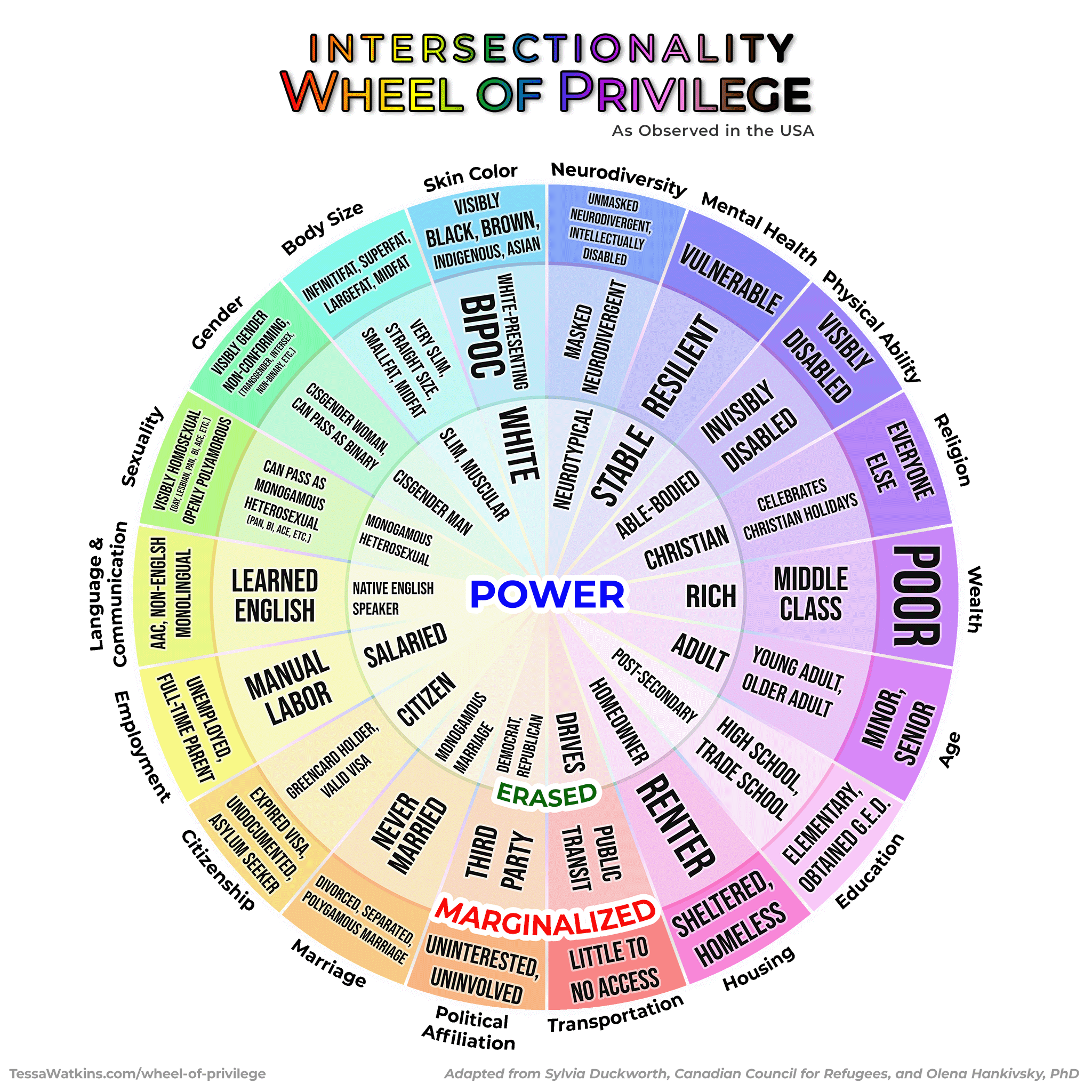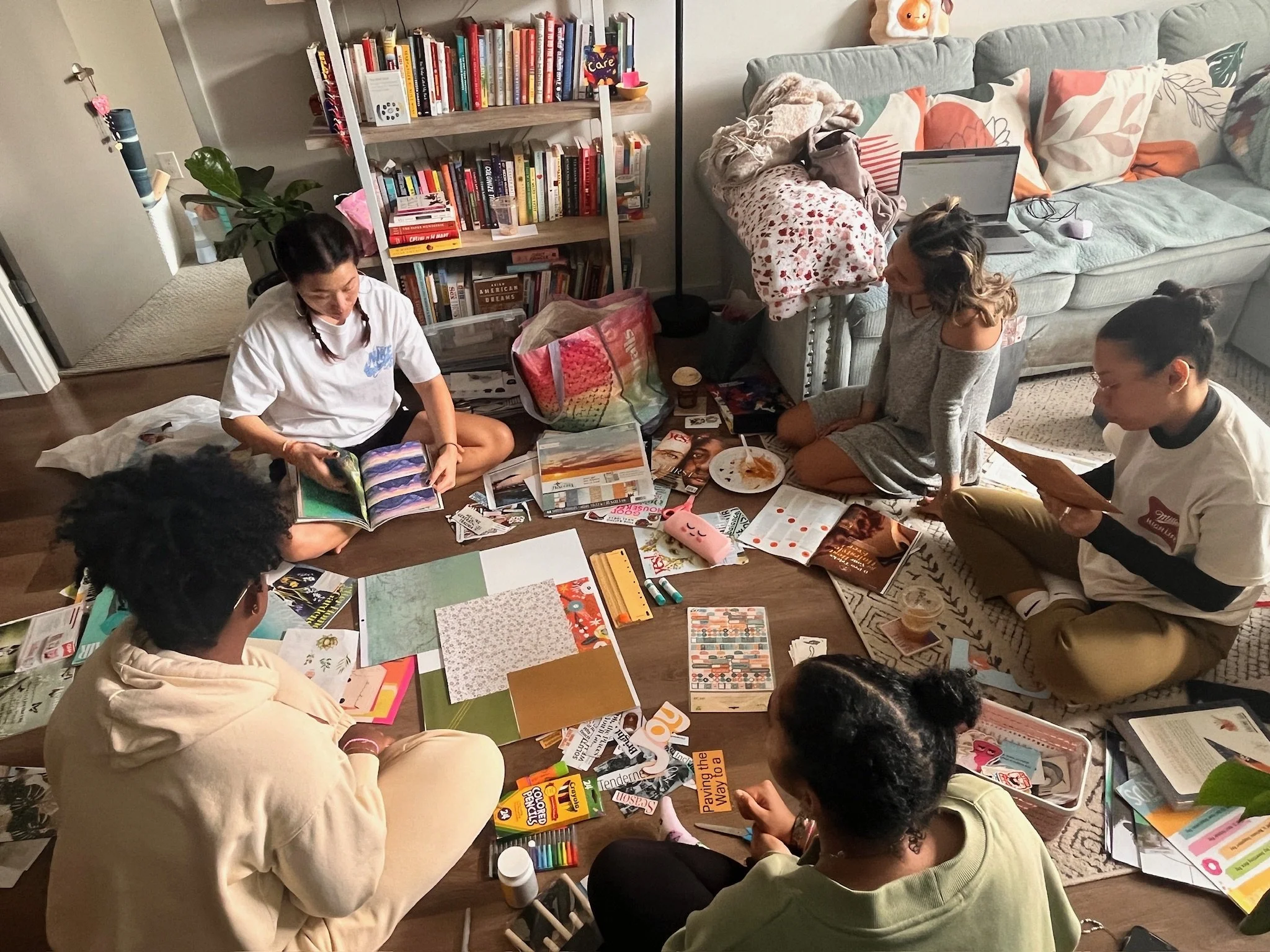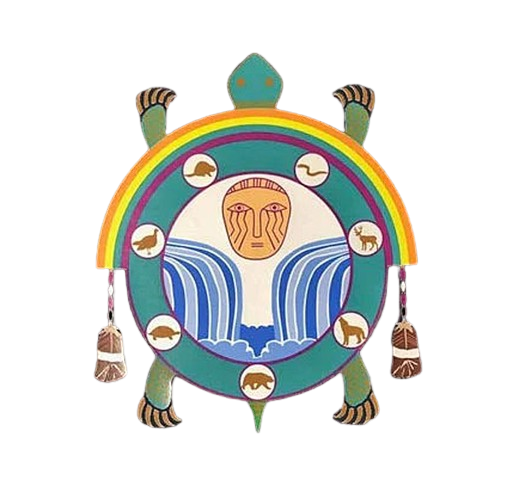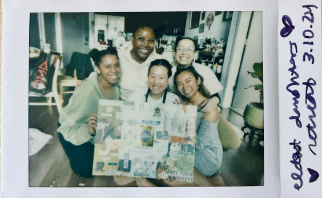Our Roots
Eldest Daughters Collective was founded November 1st, 2023 by Yoo-Jin Kang. Yoo-Jin noticed across many spaces and conversations the unique challenges, strengths, and joys that come with the experiences of eldest daughters, particularly from Black, Indigenous and People of Color (BIPOC) families. Through the collective leadership of a powerhouse team of queer BIPOC eldest daughters, including Bri Hamlet, Khala Smith, Leidy Londoño and Trishia Domingo, the Eldest Daughters Collective was officially born.
Our Mission
The Eldest Daughters Collective is a queer, Black, Indigenous, and People of Color (BIPOC)-led peer support space for self-identified eldest or only daughters of immigrant and BIPOC families. This intentional space centers the experiences, hopes, dreams, grief, and resilience of the eldest daughters who often hold the weight of their families throughout their lifetime.
Our Why
The Eldest Daughters Collective seeks to address the multifaceted challenges and unmet needs faced by eldest or only daughters of immigrant and Black, Indigenous, and People of Color (BIPOC) families.
These challenges may include:
Emotional Burden: Research indicates that eldest daughters from BIPOC families often face unique emotional burdens. They may experience stress and anxiety due to their roles as caregivers and intermediaries between cultures (Chuang & Sustaita, 2018).
Cultural and Identity Complexity: Studies highlight the challenges eldest BIPOC daughters encounter in reconciling their cultural identities with their familial roles. The complexities of acculturation and preserving cultural heritage can be emotionally taxing (Johnson & Thomas, 2019). The collective can address this gap by providing a culturally affirming space for identity exploration with the intersection of exploring and embracing queer identities.
Financial and Spiritual Responsibilities: Research shows that eldest daughters, particularly in immigrant families, often shoulder significant financial and spiritual responsibilities (Su & Corneau, 2020). Many must navigate complex financial systems, often without adequate resources or guidance. The collective can offer support, financial literacy education, and spiritual guidance.
Isolation and Lack of Peer Support: Eldest daughters' experiences of isolation have been documented in the literature (Smith & Johnson, 2017). The absence of peer support can further exacerbate feelings of loneliness and stress. The collective aims to bridge this gap by creating a supportive network where eldest daughters can share experiences and strategies.
Mental Health and Well-being: Research shows that eldest daughters may experience mental health challenges due to their roles (Chen et al., 2020). They may lack access to culturally sensitive mental health resources, and this collective does not aim to replace clinical therapy but can provide peer support and strategies to manage emotional well-being within a cultural context.
Our Guiding Principles
Interdependence
We operate with the deep belief that we need one another to survive. We are the ones we have been waiting for. This collective is built on mutual support, autonomy, and supporting people to receive the tools to pursue their healing and growth. We also know that our liberation and growth are tied to movements across many different social issues.
Intersectional
We aim to center the experiences of people who are historically marginalized, made invisible, and underserved. We know that when we serve the needs of the folks with the least access, we create a world where all of us can thrive. Thus, our collective is specifically created to service eldest daughters from Black, Indigenous, and families of color.
Joy
We work to infuse joy, pleasure, and play into our events and workshops, understanding that a key part of serving BIPOC eldest daughters is helping us tap into our joy and inner child play!
Land Acknowledgement
Every community owes its existence to previous generations worldwide, who contributed their hopes, dreams, and energy to create history. Acknowledging this truth is crucial for building mutual respect and connections across different heritages.
We recognize that we are on the ancestral lands of the Piscataway people, who lived in this region, now called Maryland, for over 10,000 years. "Piscataway" means "the people where the river bends," and their territory included southern Maryland and the Washington, D.C. area.
The Piscataway, part of the Powhatan Confederacy, spoke an Algonquin dialect and thrived through agriculture, hunting, and fishing. They lived in permanent villages, practiced sustainable land stewardship, and maintained a balanced ecosystem. Due to increasing colonization and broken treaties, many Piscataway were displaced, with some migrating as far as Canada. Today, descendants live in Maryland, especially St. Mary’s County. In 2012, Maryland officially recognized the Piscataway, although federal recognition is still pending. The community continues to preserve their heritage and educate the public.
We honor the resilience and legacy of the Piscataway people, recognizing their vital role as stewards of this land and their ongoing contributions. This acknowledgement reminds us of our responsibility to respect and sustain the environment for future generations.
Donate to Through Piscataway Eyes, a Non Profit 501(c)3 registered with the Internal Revenue Service to promote and protect the welfare , culture, and history of of the members of the Piscataway Conoy Tribe™. We do!
Labor Acknowledgement
Our collective is tended to and labored by the hands, minds, spirits, hearts, and well ancestors of Bria Hamlet, Khala Smith, Leidy Londoño, Trishia Paula, and Yoo-Jin Kang.
We honor the emotional, physical, spiritual, and relational work that is required to live into our values and tend to this collective.
We also acknowledge the broader network of laborers, caregivers, teachers, mentors, friends, and family, both past and present, whose often unseen efforts sustain our daily lives.
From the fields to the factories, the classrooms to the clinics, their toil and sacrifices make our collective achievements possible. We commit to recognizing and supporting the dignity, rights, and well-being of all workers who form the backbone of our communities and lives.




